Search
Did you mean: Horace?
Search Results

Article
Religion in Ancient China
Religious practices in ancient China go back over 7,000 years. Long before the philosophical and spiritual teachings of Confucius and Lao-Tzu developed or before the teachings of the Buddha came to China, the people worshipped personifications...
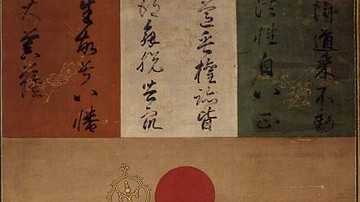
Definition
Hachiman - Origin of the Kamikaze Wind
Hachiman is the ancient Shinto god or kami of war, divination, and culture. He is famously credited with sending the kamikaze or 'divine wind' which twice dispersed the invading fleets of Mongol ruler Kublai Khan in the 13th century CE. This...
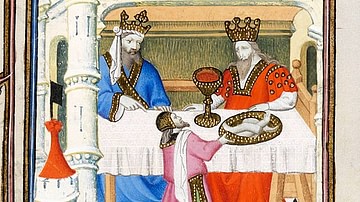
Definition
Atreus
Atreus was the mythical Greek king of Mycenae. He is perhaps best known for being the father of Agamemnon and Menelaus, two heroes of the Trojan War, as well as for the terrible curse placed upon his family. This was a hereditary curse, plaguing...

Definition
Libation Bearers
The play Libation Bearers was written by one of the greatest of all Greek tragedians Aeschylus (c. 525-455 BCE). Winning first prize at the Dionysia competition in 458 BCE, Libation Bearers was the second play in the trilogy The Oresteia...

Article
Pherenike the Female Olympic Trainer
Pherenike (l. c. 388 BCE, also known as Kallipateira) was an athlete from Rhodes who, because she was a woman, could not compete in the Olympic Games and, as a married woman, was not allowed to even watch them. Defying these rules and risking...
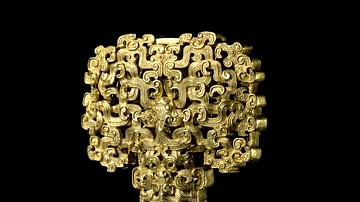
Definition
Zhou Dynasty
The Zhou Dynasty (1046-256 BCE) was among the most culturally significant of the early Chinese dynasties and the longest lasting of any in China's history, divided into two periods: Western Zhou (1046-771 BCE) and Eastern Zhou (771-256 BCE...

Definition
Writing
Writing is the physical manifestation of a spoken language. It is thought that human beings developed language c. 35,000 BCE as evidenced by cave paintings from the period of the Cro-Magnon Man (c. 50,000-30,000 BCE) which appear to express...
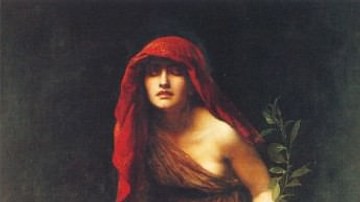
Definition
Pythia
The Pythia (or Oracle of Delphi) was the priestess who held court at Pytho, the sanctuary of the Delphinians, a sanctuary dedicated to the Greek god Apollo. Pythia were highly regarded, for it was believed that she channeled prophecies from...
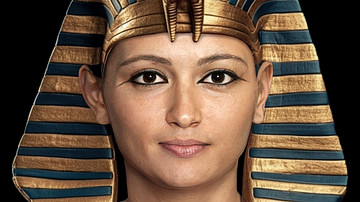
Article
Queen Hatshepsut: Daughter of Amun, Pharaoh of Egypt
Hatshepsut, whose name means "Foremost of Noble Women" or "First Among Noble Women" (royal name, Ma'at-ka-re, translated as "spirit of harmony and truth") was the fifth ruler of the 18th Dynasty (r. 1479-1458 BCE). She was the daughter of...

Article
Xenophon's Defense of Socrates
Xenophon's Defense of Socrates (c. 371 BCE) is a passage from the Memorabilia of Xenophon (l. 430 to c. 354 BCE) in which he addresses the teachings and actions of Socrates of Athens and denounces the charges against him as unjust and unfounded...